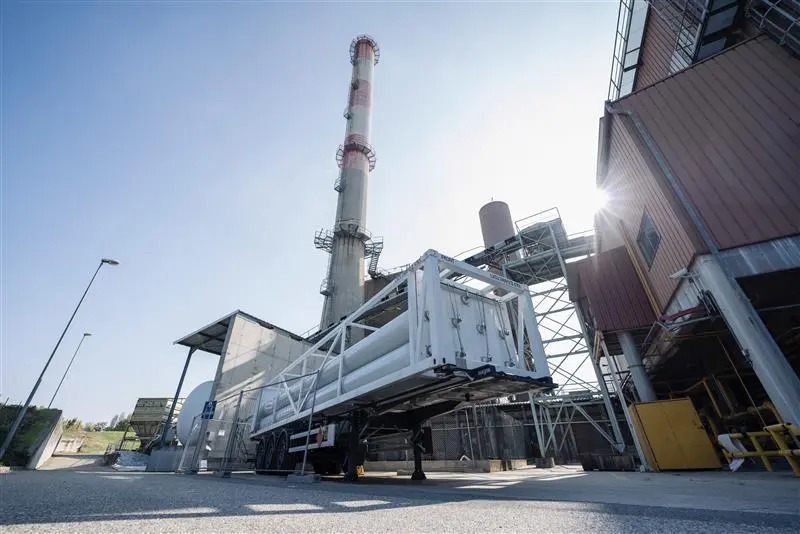Saint-Gobain Glass has taken a major step in its decarbonisation strategy by successfully testing locally produced biomethane at its Eurofloat flat glass plant in Salaise-sur-Sanne, France, a site co-owned with Riou Glass. The trials – described by regional media as a first in Europe for the flat glass industry – demonstrate the feasibility of using renewable gas in an energy-intensive sector traditionally dependent on natural gas.
Two distinct operations were carried out. The first, conducted with GRDF, involved injecting biomethane into the nearby gas grid through a local BioGNV filling station. This helped balance the network during periods of low demand while allowing the plant to benefit indirectly from renewable gas.
The second operation was performed with Methagora, which organised direct deliveries of biomethane by tanker truck. The gas was produced from agricultural and dairy-farm waste, then purified, compressed, and transported from methanisation sites in the Auvergne-Rhône-Alpes region to the Eurofloat plant. This “gaz porté” model makes it possible to supply renewable gas even in areas not connected to the natural gas network.
According to the partners, the biomethane used in the tests has a carbon footprint around six times lower than conventional natural gas. The successful trial confirms that flat glass furnaces can be powered with locally produced biomethane without compromising performance, marking a significant milestone for industrial decarbonisation.
With this initiative, Saint-Gobain Glass reinforces its commitment to a more sustainable, locally integrated manufacturing model, while showcasing how regional agricultural resources can support the transition of heavy industry toward low-carbon energy.
Source: Saint-Gobain with additional information added by Glass Balkan







